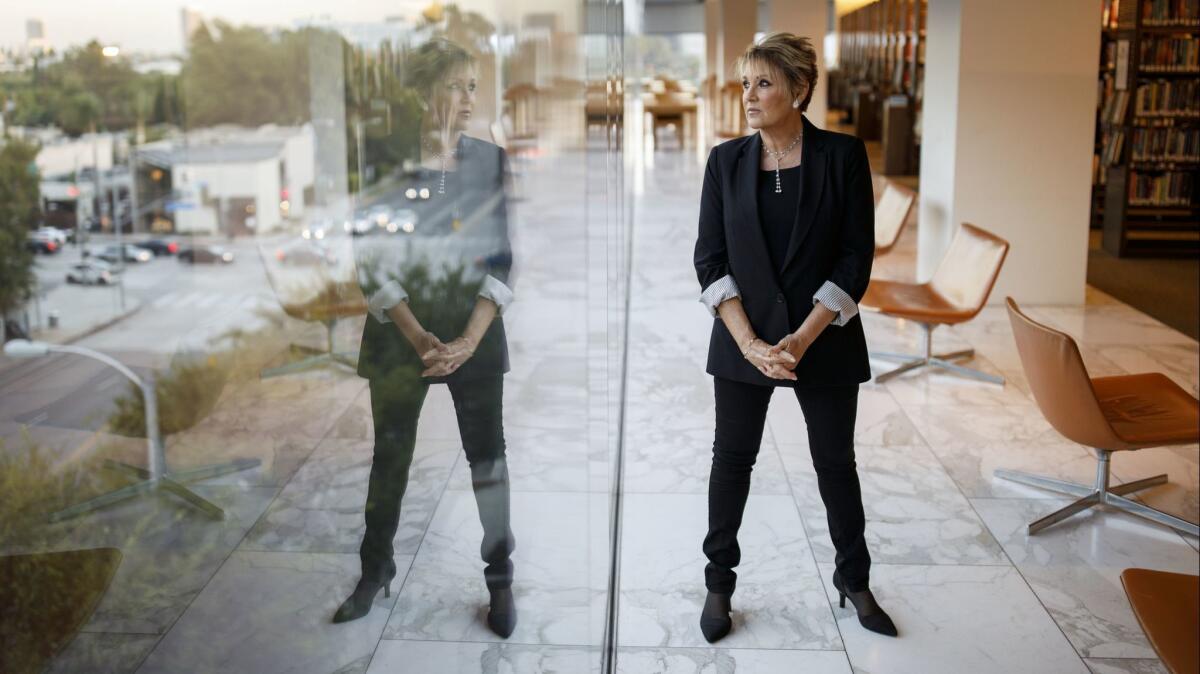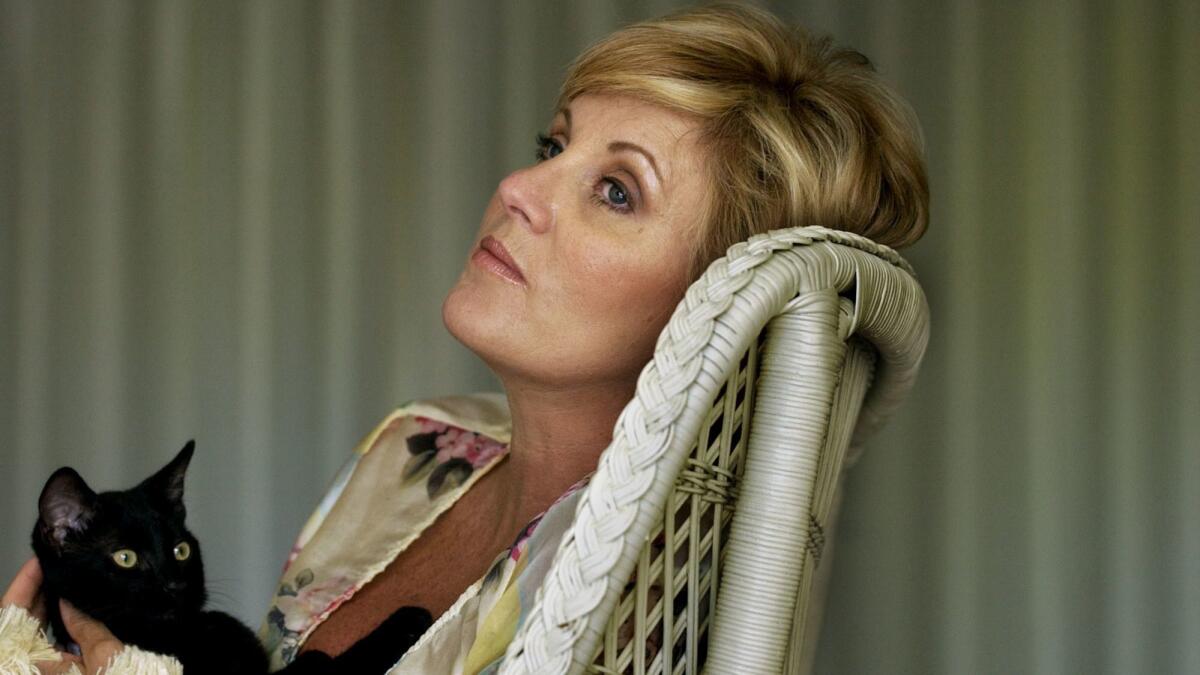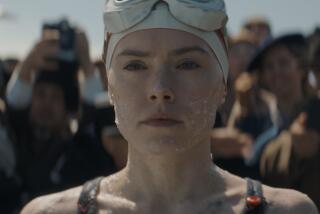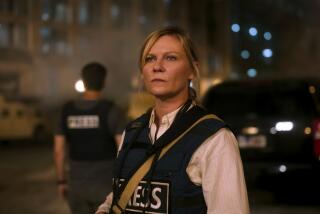Classic Hollywood; Lorna Luft remembers 1954’s ‘A Star Is Born’ starring her mom, Judy Garland

If you think there’s excitement around the new Bradley Cooper-Lady Gaga remake of “A Star Is Born,” you should have been around 64 years ago.
That’s when Warner Bros. rolled out its lavish remake of the Hollywood tale — the original came out in 1937 — starring Judy Garland in her first film in four years playing an actress on the rise who marries a superstar (James Mason) on the way down due to alcoholism and errant behavior.
In fact, the premiere Sept. 29, 1954, at the Pantages Theatre in Hollywood was so star-studded that the event was telecast on TV with the film’s co-star Jack Carson interviewing attendees. At one point, Dean Martin tells the crowd that Garland would receive every award for her extraordinary performance.
Garland, then pregnant with her third child Joey and accompanied by her third husband Sid Luft who was also a producer on the film, was glowing with excitement at the premiere. And the reviews were favorable, especially for Garland and Mason.
“A remarkable range of entertainment is developed on the screen,” said New York Times film critic Bosley Crowther. “George Cukor gets performances from Miss Garland and Mr. Mason that make the heart flutter and bleed.”
But that was just part of the story with “A Star Is Born,” according to Garland and Luft’s daughter, Lorna Luft.
“I’ve always said, they won the Kentucky Derby,” said Luft, a singer and actress. “They ran the race. They crossed the finish line. And then their horse came up lame.”
Luft, now 65, is co-author with film historian Jeffrey Vance (“Chaplin: Genius of Cinema”) of the new Running Press/Turner Classic Movies book, “A Star Is Born: Judy Garland and the Film That Got Away.” Luft previously wrote the 1998 memoir “Me and My Shadows: A Family Memoir,” which became a 2001 Emmy-winning ABC miniseries.
Of course, it’s not just kismet that “A Star Is Born” is coming out the same time as the new movie version. The book was conceived as a tie-in to the new one while paying tribute to the Garland version.
Luft, in a recent phone interview, said she’s excited about the Cooper/Gaga version which opens Friday. “They picked up the torch, carrying the journey of one of the greatest love stories ever told on film,” she noted.
Initially she was going to do the book several years ago with Vance. “I have 700 photographs [from the production],” said Luft. “I thought I’d love to share them with the public.”
Then she read that Clint Eastwood was set to direct a remake with Beyoncé. But in 2012, Queen Bee left the production. “That movie didn’t happen and neither did that book,” said Luft. But when the project was resurrected, so was the book.
Vance puts “A Star Is Born” in historical context, exploring its roots beginning with Cukor’s pre-Code 1932 film “What Price Hollywood?” starring Constance Bennett, and the acclaimed 1937 Technicolor “A Star Is Born,” directed by William Wellman and starring Janet Gaynor and Fredric March.
(The book also has a chapter on the 1976 rock remake with Barbra Streisand and Kris Kristofferson.)

I wanted to tell this story because it’s remarkable in the sense that my mother and my father wanted to make this magnificent and brilliant film and they did.
— Lorna Luft
“I wanted to tell this story because it’s remarkable in the sense that my mother and my father wanted to make this magnificent and brilliant film and they did,” said Luft. “For the first time, my mother had real effective control.”
Though director Cukor turned down the 1937 “A Star Is Born” because he thought it was too close to “What Price Hollywood?” he eagerly signed on to the Garland version. He had long wanted to work with her, having spent one week directing her in “The Wizard of Oz.”
Noted playwright and screenwriter Moss Hart penned the adaptation. And the film reunited Garland with her “Wizard” composer Harold Arlen, who with lyricist Ira Gershwin wrote the terrific tunes including Garland’s showstopper “The Man That Got Away.”
Mason was not the studio’s first choice. They had set their sights on Laurence Olivier, who passed on the project. Garland and Luft wined and dined Cary Grant, who also eventually turned them down. “I remember my mother once saying to me, ‘Oh, if I could get those dinners back!’”
But Mason, who could deftly play the dark side of even the most charming character, was the perfect choice. “James Mason could do anything,” said Luft. “He’s one of the greatest actors I ever met. He talked to me a great deal. He loved working with my mother. And trust me, he knew he wasn’t the first choice.”
Garland didn’t see the film as a comeback, “My mother always said she never went away. She said, ‘Where did I go?’”
Though she may have been one of MGM’s biggest stars thanks to “The Wizard of Oz,” 1944’s “Meet Me in St. Louis” and 1948’s “Easter Parade,” she was let go by the studio in 1950 because of her dependency on prescription drugs, a nervous breakdown and suicide attempts.
But then she met Sid Luft, whom his daughter described as someone out of a Damon Runyon story. As Garland’s manager and then husband, he helped launched her comeback with concerts in 1951-52 at the Palace Theater in New York and the London Palladium.
Hollywood regained interest in Garland, including Jack Warner, who, like all of the film studio executives, was looking for a way to lure people from their TV sets and back into the movie theater. But there were soon delays in the production because he was trying out different formats in which to shoot the film. He finally decided on CinemaScope and Eastman Color.
Garland’s personal demons led to more delays. The budget swelled and went over schedule.
“If you are going to do a book on these movies, you have to tell the truth,” said Luft. “This movie is about watching someone’s star rise, watching someone’s star fall. It’s about love and it’s about tragedy. It is truly art imitating life, imitating art.”
“A Star Is Born” was originally three hours long and was expensive by the standards of the day, costing some $6 million. But it performed strongly out of the starting gate, grossing $700,000 in just seven theaters in one week.
But commerce won out over art.
Harry Warner, the older brother of studio chief Jack and president of Warners, deemed the film too long and ordered it cut by 30 minutes to squeeze in more screenings. “They had projectionists cut it up,” said Luft. “I mean can you imagine if that happened today?”
Even more heartbreaking was that the studio took the negative of the excised scenes and melted it for the silver content. Critics were not happy. “A star is shorn ... every cut leaves a gaping hole,” said Crowther. The shortened film failed to catch on with the audiences.
The film did receive six Oscar nominations including lead actress, actor and best song. But Garland lost to Grace Kelly for “The Country Girl” and song went to the bland “Three Coins in the Fountain.”
But in 1983 a “Star” was reborn and audiences finally could see it was a masterpiece. Ron Haver, the late film historian and head of the Los Angeles County Museum of Art’s film department, made it his quest to find the missing footage. He tracked down the complete original stereophonic soundtrack and alternate takes of two of Garland’s musical numbers. For those sequences he couldn’t find, he used production stills.
The Library of Congress selected “A Star Is Born” from the National Film Registry in 2000 and a new digital restoration from a scan of the original negative premiered at the TCM Classic Film Festival in 2010.
Garland would make only three more films including earning an Oscar nomination for her dramatic turn in 1961’s “Judgment at Nuremberg.” She starred in the 1963-64 CBS musical variety series “The Judy Garland Show” and continued to do concerts until her death in 1969 at age 47 of a barbiturate overdose.
“I think what we have to concentrate on is what she left us,” said Luft. “She’s beloved. She’s a legend and made legendary films.”
More to Read
Only good movies
Get the Indie Focus newsletter, Mark Olsen's weekly guide to the world of cinema.
You may occasionally receive promotional content from the Los Angeles Times.











